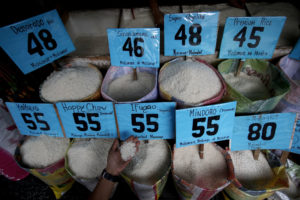In a workshop, a third-generation scion, 25, asked about RA 1180. His father told him that at first, it adversely affected their family’s retail business. But eventually, it became a blessing in disguise, motivating the elders to branch out into finance.
Known as the 1954 Retail Trade Nationalization Law, RA 1180 took effect during the administration of President Ramon Magsaysay. The first sentence says it all: “No person who is not a citizen of the Philippines, and no association, partnership, or corporation the capital of which is not wholly owned by citizens of the Philippines, shall engage directly or indirectly in the retail business.”
Thus, many retailers became full-fledged Filipino citizens. Others diversified, as described by Atty. Jim V. Lopez in his book “Family Business Law Declassified”: “When the law banned aliens from engaging in [the] retail trade, a group of enterprising businessmen who lost their investments…met in Binondo and other parts of the country to discuss a strategic plan to pool their financial resources. They decided to move their funds from retailing and funnel them to more lucrative investment areas in the Philippine economy, such as real estate development, banking, finance, malls, aviation, gaming, tourism, telecommunications, power generation and distribution, food processing and others.”
“When a window closes, a door opens. The rest is history.”
But then, I reminded the heir, I hope his father had also told him that RA 1180 had long been repealed, replaced by RA 8762 in 2000. The Retail Trade Liberalization Law begins as follows: “It is the policy of the State to promote consumer welfare in attracting, promoting and welcoming productive investment that will bring down prices for the Filipino consumer, create more jobs, promote tourism, assist small manufacturers, stimulate economic growth and enable Philippine goods and services to become globally competitive through the liberalization of the retail trade sector.”
“Pursuant to this policy, the Philippine retail industry is hereby liberalized to encourage Filipino and competitive retail trade sector in the interest of empowering the Filipino consumer through lower prices, higher quality goods, better services and wider choices.”
Well and good. The law can spur competition, and motivate small businesses to enter the playing field.
However, Lopez warns: “The law can make or break a family business. The problem with the law is that many people, including some lawyers, have a hard time knowing what to do with it to anticipate and solve family business problems. It is not what you know about the law that counts. It is what you can do with what you know that truly matters in sustaining family businesses.”
Lopez said: “Often the law is like your nose. Without the aid of a mirror, you really can’t see the darn thing even if it is at the center of your face.”
Lopez gives a concrete example of “a huge bear trap” that may befall family businesses that form closed corporations, where all shares are held by the family.
“A ticking time bomb…is bound to explode at any moment. The legal quicksand will make them personally liable for negligent acts and other corporate civil wrongs by provision of law.”
Many closed companies have to take liability insurance, but the latter might not be enough.
“If sued for negligence and other wrongful acts not amounting to a crime, all shareholders and directors of closed corporations are exposed to unlimited liability. They can lose everything to judgment creditors, more than the assets they have invested in the family business.”


